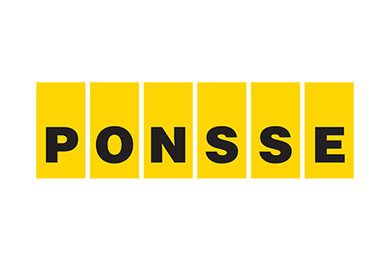The aim of the Dismantling Segregation project carried out by the Finnish Institute for Health and Welfare (THL) and the Ministry of Social Affairs and Health is to dismantle gender segregation in working life. The project aims to increase the number of women in the forest sector together with Savo Vocational College, Finnish Forest Industries Federation and Ponsse. The project offers training and tools for partners to dismantle gender segregation in the forest sector. At the same time, the aim is to strengthen regional cooperation in Eastern Finland.
Gender-based segregation in working life is extensive in Finland. In most cases, women and men work in different fields, occupations and jobs, holding positions of varying levels of demandingness in working life.
According to the salary data of the Confederation of Finnish Industries (EK), the percentage of women working in the forest sector was 21% in 2021. In recent years, the percentage of women admitted to university studies in forest sciences has varied between 40% and 60%, while the share of women admitted to vocational education and training in forestry was only 5% in 2022. Students graduating with a vocational qualification in forestry are employed as, for example, forest machine operators. In the spring 2022 joint application process for Savo Vocational College, only one woman was admitted to forestry studies.
“Forestry professions are not gender-bound. The common goal of forestry companies and educational institutions is to increase the number of women seeking employment in the sector,” explains Ari Puustinen, Head of Education at Savo Vocational College.
Help for labour shortages
Many sectors that are highly segregated by gender suffer from severe labour shortages. According to a member survey conducted by the Finnish Forest Industries Federation (2022), as many as 86% of forest sector operating sites have experienced difficulties in recruiting over the past two years.
“Even today, the forest sector has a lot of available, interesting jobs. From the point of view of the operations of companies, it is vital that good employees are made available for work in the sector, “says Reetta Pilhjerta, Manager, Education and Skills at the Finnish Forest Industries Federation.
Dismantling segregation is one solution for sectors with labour shortages where new experts will also be needed in the future. Segregation also has an impact on regional vitality.
“Increasing the number of women in forestry studies and jobs is one way of ensuring the availability of labour in the sector. For example, workplaces can use communication and recruitment methods to break down stereotypes and increase diversity, “says Mia Teräsaho, Project Manager of the Dismantling Segregation project at THL.
“For Ponsse, it is important that top experts in the forestry sector can work in the field, regardless of gender. Equality and non-discrimination are the basis of our responsibility, and we want to do our part to promote the attractiveness of the industry for everyone”, says Paula Oksman, Director of Human Resources at Ponsse.
The project is part of the joint Equal Pay Programme of the Government and central labour market organisations. The aim of the project is to promote gender equality and dismantle gender segregation in working life by offering practical solutions and tools for workplaces, such as for diversity promoting recruitment and gender-aware communication. The project will produce a toolkit for all workplaces to use online.
To read other Finnish related posts click here.
To read Ponsse related posts click here.







